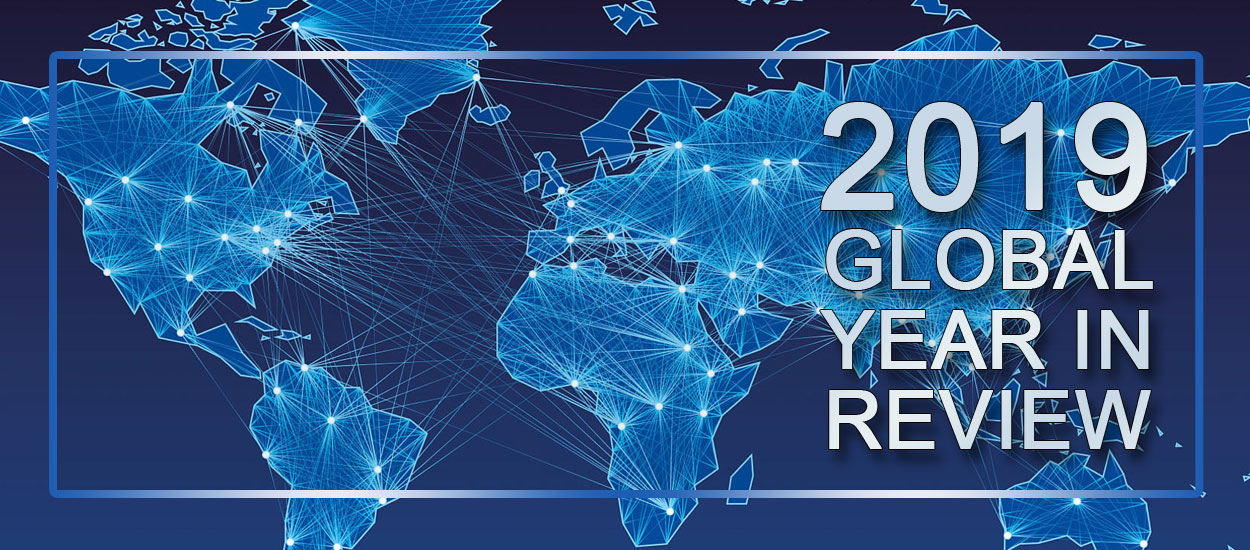2019 was full of gambling stories related to sports betting and casino gaming that were noteworthy and here are the top 5 gambling stories throughout the world.
5. The Saga over Fixed Odds Betting Terminals and problem gambling in the UK
The U.K. is often seen by people in most countries as the most liberal when it comes to gambling. That vision, however, changed when the country applied new laws to increase taxes on gambling and ensure that money laundering and problem gambling concerns were addressed. It started with he creation of the White List which required other countries to show compliance with UK rules to be allowed to advertise in the UK and it became more evident in 2014 when the UK Gaming Commission created a new policy that addressed all issues both at land based operations and online. One of the key components of the new policy was that the companies had to know their clients and ensure they were making efforts to stop problem gambling. One of the new rules to address problem gambling included a £2 maximum stake on fixed odds betting terminals (FOBT), which are effectively video gambling terminals operating in betting shops that provide wagering non games like roulette, blackjack, slots and predetermined horse races. The limit was always £100, but the addiction to these machines and the speed at which players could lose their money created a situation where the government couldn’t deny it was leading to problem gambling. Consequently, on the advice of the Gambling Commission, the opposition government and shaming by media outlets like the BBC and Guardian newspapers the limits were dropped to £2.
The BBC also wrote a story which indicated that the industry was targeting problem gamblers, offering gifts and incentives to keep them gambling, even when it became clear they have a problem and can’t afford it. The BBC focused on a casino company that constantly harassed a woman who took breaks from gambling offering her free money to keep playing and even offered free money as a “gift” in sympathy of her father dying. And in 2019 the NHS Long Term Care Plan noted that the industry spends £1.5 billion a year in marketing to gamblers but only £10 million a year contributing to programs to stop problem gambling which they said was unreasonable.
The sports betting companies seemed most concerned by the drop in FOBT limits argued that the new limit on the machines would drastically affect their revenues, so they offered some alternative solutions including time out periods, but that was met with derision by the government. And while most places abided by the new rules, other companies decided to keep operating as is and this consequently led to the UK government issuing fines totaling almost $20 million USD, the largest being to Coral and Ladbrokes. In addition, a few operators who indicated they couldn’t operate under the new rules simply shut down their operations. 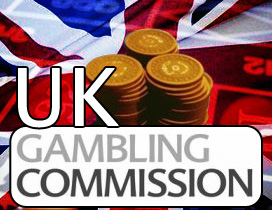 The credit card companies also tried to help the situation of problem gambling, first led by Barclays bank but later followed by most banks in 2019, that allows gamblers to "turn off" payments for any activities that could indicate fraud or addiction problems and which can only be turned back on after a lapse in time and a discussion with an employee of the bank. These include gambling, restaurants, supermarkets, 1-900 lines and gas purchases. The logic is that these purchases often indicate impulse buying so the user can stop their addictive practices. How gasoline, restaurants and gambling sites are related is mystifying, but the anti-gambling groups in the UK applauded the decision.
The credit card companies also tried to help the situation of problem gambling, first led by Barclays bank but later followed by most banks in 2019, that allows gamblers to "turn off" payments for any activities that could indicate fraud or addiction problems and which can only be turned back on after a lapse in time and a discussion with an employee of the bank. These include gambling, restaurants, supermarkets, 1-900 lines and gas purchases. The logic is that these purchases often indicate impulse buying so the user can stop their addictive practices. How gasoline, restaurants and gambling sites are related is mystifying, but the anti-gambling groups in the UK applauded the decision.
As a result in the decrease in FOBT terminal betting, the increase in tax rates and new rules to curtail gambling the UK online gambling sector saw its first ever decline in revenue in 2019, which some say is good but others say is a major step backwards.
The change from being one of the most liberal countries for gambling to a country focused on curtailing problem gambling and being very strict in the process makes the saga of FOBT and problem gambling rules in the UK the #5 global story of 2019.
4. China's efforts to ensure the ongoing success of Macau
When one thinks of gambling in Asia, the first place that comes to mind is Macau. The economy is almost exclusively based on gambling and tourism and Macau’s gambling industry is estimated to be around $38 billion USD per year, which is almost 8 times as high as the revenue in Las Vegas. Because gambling is illegal in mainland China and Hong Kong (save for horse racing), and until recently was illegal in other parts of China, Macau has a virtual monopoly on casino gambling.
Legalized in 1962 when Macau was part of Portugal, all gambling in Macau was controlled by Sociedad de Turismo e Diversões de Macau, which is owned by Stanley Ho. Today Ho, who still seems quite vibrant at age 98 years old, still owns 14 of the casinos in the special administrative area which is now controlled by China. After 2000 Macau ended the monopoly and began issuing licenses to other companies which included Las Vegas Sands, Wynn, MGM and Galaxy, a very large Asian casino operator.
Macau has always enjoyed high revenues as Chinese nationals travel on ferries from Hong Kong or Guangzhou (part of Guangdong province) or they come on junkets where companies escort VIPs to casinos, offering perks and other incentives in exchange for a commission of the bettor’s gambling. Many of the junkets are legit but others have been tied to organized crime which has led to several them being shut down.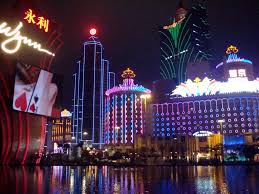 Macau’s gambling revenue more than doubled from 2009 to 2011 ($15 billion USD to $34 billion USD), and rose to a high of $45 billion in 2013 before it came crashing down in 2015 to $28 billion as a result of a slowing Chinese economy and reforms by the Chinese government that included an attempt to curtail illegal activities at Macau casinos. The revenues rose again after that each year to over $37 billion in 2018, but 2019 saw a major decline again and the expectations are that the yearly decrease could be as high as 15% over the year which would bring it close to the $30 billion mark. The decline has been blamed on the U.S.-China trade war and the decision by many high rollers to go to the Philippines and Singapore (which has seen rapid growth) to gamble. Some Macau junket operators decided to take VIP clients to Vietnam or Cambodia where taxes are lower and consequently their commissions are higher. As well, it was reported that many Chinese citizens were playing online from casinos run by Chinese ex-pats in locations close to the country and even though online gambling is illegal in China, even punishable by death, it wasn’t dissuading people who preferred the comfort of wagering at home.
Macau’s gambling revenue more than doubled from 2009 to 2011 ($15 billion USD to $34 billion USD), and rose to a high of $45 billion in 2013 before it came crashing down in 2015 to $28 billion as a result of a slowing Chinese economy and reforms by the Chinese government that included an attempt to curtail illegal activities at Macau casinos. The revenues rose again after that each year to over $37 billion in 2018, but 2019 saw a major decline again and the expectations are that the yearly decrease could be as high as 15% over the year which would bring it close to the $30 billion mark. The decline has been blamed on the U.S.-China trade war and the decision by many high rollers to go to the Philippines and Singapore (which has seen rapid growth) to gamble. Some Macau junket operators decided to take VIP clients to Vietnam or Cambodia where taxes are lower and consequently their commissions are higher. As well, it was reported that many Chinese citizens were playing online from casinos run by Chinese ex-pats in locations close to the country and even though online gambling is illegal in China, even punishable by death, it wasn’t dissuading people who preferred the comfort of wagering at home.
government, which has always had a Manifest Destiny type policy that says they have the right to curtail any activities of countries surrounding them that opposes their beliefs or harms their economy, started targeting the other Asian countries and began providing them ultimatums. The Chinese embassy in the Philippines approached the Philippine government and told them that their online gambling licenses are threatening China’s financial security, so the Philippine Offshore Gambling Operators announced it would halt the number of licenses it would hand out and apparently secretly agreed to try harder to stop Chinese ex-pats from obtaining licenses. And in Cambodia, the government announced in November that it wouldn’t renew licenses when they expire and most recently China told Vietnam to do the same or else. And in the area of casino junkets the government in Beijing told some of the junket operators that if they took clients to any place in Asia other than Macau they were operating illegally. This led to at least one junket operator to say they would only offer junkets to Macau from now on.
So the fact that China can control the actions of countries around it and the fact that Macau gambling revenue is so essential to its financial security that it will do whatever is necessary to ensure that fountain doesn’t stop, makes the Macau decline and Chinese efforts to curtail it the #4 gambling story of 2019.
3. The ongoing confusion of sports betting licenses in Germany
One of the more fascinating global stories of recent years has been the fight for sports betting licenses in Germany. The issue has been going on for almost a decade now and has had more twists and turns than an Alfred Hitchcock thriller.
The German government passed a new interstate treaty in 2002 that was going to allow online sports betting, but limited the sports betting licenses to 20, the vast majority which turned out to be local companies. That ruling was challenged by losing companies such as Bet365 and William Hill in the European Union. The EU agreed and told Germany that the 20-license limit violated EU free trade laws and hence the country was told to try again. German courts later also ruled against the national government and said limiting licenses to 20 licenses was illegal, plus the method for choosing the winning licenses wasn’t transparent. In the interim when they heard about the 20-license limit, one rogue state, Schleswig-Holstein (S-H) decided to opt out of the treaty and passed a law to allow for companies to obtain licenses in the state independent of the German law. It even allowed companies applying for a S-H license to offer online casino betting and poker, which were absolutely illegal per German rules.
Germany appealed to the EU, but the European Commission said that the country could have two separate gambling treaties. Numerous companies including Bet365 and PokerStars applied for an S-H license and in 2002 received 7-year licenses. That excitement was short lived when only two years later a new S-H government, more in line with the federal government, was subsequently elected and said it would abide by the federal gambling law, although it would honor the seven year licenses set to expire in 2019. In the next election, that government in S-H was defeated and the new government said it was revoking the decision by the last government to abide by federal law and was going back to offering more licenses. In the meantime, it extended the current licenses in the state to 2021.
The German national government, however, had not given up its efforts for a federal treaty and about two years ago said it would provide full licenses to those who won the bid and would provide temporary licenses to all companies that applied the first time and lost, such as Bet365. But that too was shot down by the EU and courts.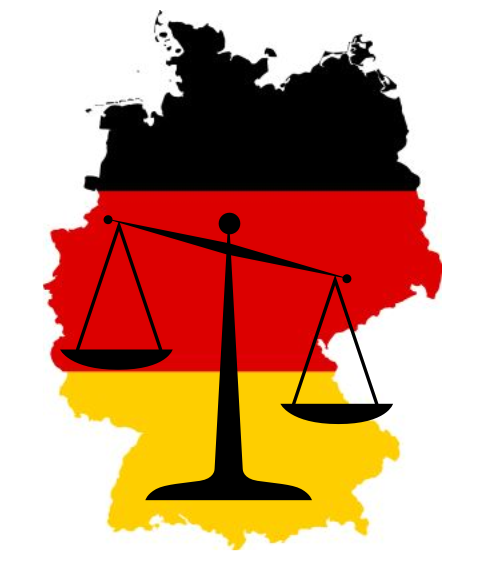 Fast forward to 2019. Frustrated by the inability to create regulations, the national government created a temporary treaty unanimously agreed to by the states. That treaty allows Germany to start issuing sports betting licenses by January 2020 that would be valid until June 2021. The temporary treaty permits S-H to operate as they have until 2021, provided the state doesn’t market the online casino products to other states. The government and the country agreed not to prosecute companies which cater to the German market but didn’t acquire a license before 2021 so long as the betting is only for sports and those companies pay a 5% betting the tax to the federal government. The only stipulation in the interim treaty is that companies applying for a sports betting license cannot be connected to any company offering casino games as well. The hope is that by 2021 when the temporary treaty expires it will be replaced by a new permanent national treaty that all parties can agree too.
Fast forward to 2019. Frustrated by the inability to create regulations, the national government created a temporary treaty unanimously agreed to by the states. That treaty allows Germany to start issuing sports betting licenses by January 2020 that would be valid until June 2021. The temporary treaty permits S-H to operate as they have until 2021, provided the state doesn’t market the online casino products to other states. The government and the country agreed not to prosecute companies which cater to the German market but didn’t acquire a license before 2021 so long as the betting is only for sports and those companies pay a 5% betting the tax to the federal government. The only stipulation in the interim treaty is that companies applying for a sports betting license cannot be connected to any company offering casino games as well. The hope is that by 2021 when the temporary treaty expires it will be replaced by a new permanent national treaty that all parties can agree too.
Unfortunately, even this new temporary treaty isn’t sitting well with many gambling groups. The German Sports Betting Association says the treaty fails to address issues which creates low limits and prevents in-play wagering, which they say will convince Germans to continue betting with other jurisdictions that do allow it; The German Online Casino Association is upset that the temporary treaty still doesn’t allow Germans to wager on casinos online and are also concerned that any licensed sports betting companies can’t offer casino games, which they claim will be a major problem since all non-German sports betting companies offer casinos and poker; the EU is still unhappy because they say the new treaty does not address the issues which made it in non-compliance with the EU rules and doesn’t lead to a path that will be EU compliant by 2021; and the national lottery is upset because they say that the rules don’t prevent Germans from betting in other jurisdictions which they say eats into their revenues.
As a result, the temporary stopgap treaty has gotten little support and the application for legal licenses has been non-existent, since there is really no benefit to having a license. Non-German companies are still getting action from German bettors, so it is actually more of a disadvantage to them to receive a stopgap license that would limit the offerings they can make, including casino games. Without getting a license they don’t have to pay the tax imposed by the country and German companies have no reason to pay a fee since they can still technically operate legally with no ramifications.
So, to say the German online gambling market is still a mess is an understatement and the expectation that all will be solved in 2021 with a new treaty is a pipe dream.
The fascinating saga is proof that federal governments aren’t always as powerful as and that states have rights that often supersedes the federal rules. That makes the German online sports licensing story the #3 global gambling story of 2019.
2. Major change in online Kenyan online sports betting
Last year the Kenyan government announced that it was going to allow legal online sports betting, which included a tax of 35% of gross profits. The operators were furious and said they couldn’t compete on such a tax, so the government backed down and announced a 15% tax on gross profits as well as a 20% flat tax on any winnings automatically deducted from winning bets. While not happy with the ruling, most Kenyan operators seemed to be in line with the rules and offered sports betting services. That changed in May when the Kenyan government accused the online operators of shortchanging them on taxes owed and announced that unless all back taxes were paid by the operators as of July 1st they would be shut down.  Most operators, however, fought back saying that they did pay the taxes owed and contributed to the economy in other ways with sponsorships and investment in youth sports programs. Nevertheless, the government said that the operators neglected their responsibilities and when those operators didn’t remit what the government said was owing, they were shut down. In all, 27 operators, including the three largest operators, SportPesa, Betin and Betway, were forced to cease operations. And to ensure that the companies couldn’t operate the government ordered the three largest mobile companies to withdraw the paybill numbers from those companies, which is the only way bettors could get money to and from the sportsbooks, since all gambling in Kenya is conducted via electronic transfers confirmed with SMS texts.
Most operators, however, fought back saying that they did pay the taxes owed and contributed to the economy in other ways with sponsorships and investment in youth sports programs. Nevertheless, the government said that the operators neglected their responsibilities and when those operators didn’t remit what the government said was owing, they were shut down. In all, 27 operators, including the three largest operators, SportPesa, Betin and Betway, were forced to cease operations. And to ensure that the companies couldn’t operate the government ordered the three largest mobile companies to withdraw the paybill numbers from those companies, which is the only way bettors could get money to and from the sportsbooks, since all gambling in Kenya is conducted via electronic transfers confirmed with SMS texts.
The government said the reason for the move was twofold. They contended that the companies were delinquent in payments, but they also claimed the companies were targeting youth, which is against the law. In a press statement Interior Minister Fred Matiang’i stated the following:
"Rogue behavior in the betting and lotteries industry is endangering the lives of our young people. This cleanup has just started, and we will carry it through no matter what it takes, because young Kenyan lives are worth saving."
Some foreign reporters confirmed the comments by Matinang’i stating that they saw teens as young as 14 living in slums committing illegal and immoral activities to get money to wager on sports.
The betting companies that were shut down, however, called shenanigans and said the real reasons for the shutdowns were all political since the government renewed the licenses of companies connected to the government, including Bet Lion, Mcheza, Kwikbet, Odibets, Gamemania, Bet Palace and Betika. And analysts familiar with the Kenyan situation said that some of those companies, including Mcheza and Odibets, advertise more than any of the ones shut down and are far more teen focused in their advertising and social media efforts.
Nevertheless, the government stood firm and Betway apparently paid the back taxes and started operating again. SportPesa and Betin reached a deal with the government that would have allowed them to reapply for a license, but at the last second the two companies decided not to reopen locally because they claimed the 20% tax was unfair and made them uncompetitive. Consequently, they laid off 2,500 workers and closed operations. Considering those companies accounted for almost 60% of the betting it was a huge blow to the Kenyan economy, especially since the country claims that SportPesa still owes almost $30 million U.S. in taxes, which it now has no viable reason to pay. Furthermore, any future revenue from those operations is gone. Now there is a call by some lawmakers to eliminate the private online sports betting companies altogether and create a monopoly run by the lottery. But even if that happens it is expected that the preferred companies that were not shut down will still be able to get their piece of the pie somehow.
In the end the shutdowns were all about politics and monopolies for companies close to the government. This shouldn't be overly surprising since that is a common theme everywhere, including in Canada and in many U.S. states.
The Kenyan online sports betting fiasco shows how greed, protectionism and corruption can destroy a lucrative industry and lead to the loss of thousands of gambling industry jobs. For that reason, the changing online sports gambling industry in Kenya is #2 on the global stories of 2019.
1. The plan for casino gambling in Japan
Japanese residents have always loved to gamble, but legally the only forms of permitted gambling in the country are lotteries and horse racing. Pachinko (similar to old pinball machines or plinko on The Price is Right) is also a very popular gambling option for residents and though it is technically illegal, pachinko bars operate without interference from authorities. The latest figures show that there are 15,000 pachinko parlors (3 million machines) operating in Japan with the industry employing almost 300,000 people. Japanese residents also bet on sports online without much interference. One form of gambling that has never been legal in Japan, however, or even looked into for legalization is casino gambling. 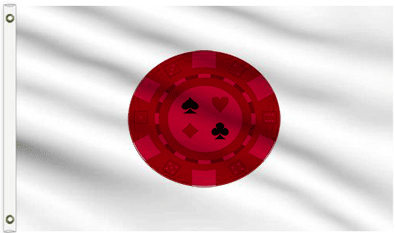 That changed in 2017 when the Japanese government, led by Shinzo Abe, announced it was looking into authorizing resort casinos to help fuel the economy and called on cities to indicate interest in hosting the casino. That announcement immediately perked the interest of American and Asian casino companies who saw big dollar signs. The Las Vegas Sands were the first to throw their names into the ring saying they were interested in hosting casinos in Tokyo or Yokohama, followed by Wynne, who said they were also interested in developing a casino in those two cities, as well as Osaka. And while not officially throwing its hat in the ring, it is well known MGM is very interested in a casino resort and are preparing to make a major pitch for a Tokyo or Yokohama resort casino that will be hard to pass up. In fact, MGM has started selling properties and freeing up funds, and Japan is on the top of their list for global expansion.
That changed in 2017 when the Japanese government, led by Shinzo Abe, announced it was looking into authorizing resort casinos to help fuel the economy and called on cities to indicate interest in hosting the casino. That announcement immediately perked the interest of American and Asian casino companies who saw big dollar signs. The Las Vegas Sands were the first to throw their names into the ring saying they were interested in hosting casinos in Tokyo or Yokohama, followed by Wynne, who said they were also interested in developing a casino in those two cities, as well as Osaka. And while not officially throwing its hat in the ring, it is well known MGM is very interested in a casino resort and are preparing to make a major pitch for a Tokyo or Yokohama resort casino that will be hard to pass up. In fact, MGM has started selling properties and freeing up funds, and Japan is on the top of their list for global expansion.
In October 2019 the host cities were made official when Japan’s Land Minister held a news conference indicating that 8 cities had come forward expressing interest as being hosts. Hokkaido, Chiba, Tokyo, Yokohama, Nagoya and Osaka all expressed interest as did the Prefectures of Nagasaki and Wakayama. Hokkaido has since bowed up. The Land Minister announced that three resort casinos will be allowed to operate once the cities are chosen. The news, however, has not won favor with all residents as polls show that almost 60% of the population do not agree with the introduction of casinos. As well the new rules announced this year require the casinos to collect a tax on all chips bought at the local casinos, which casino operators say will be a big deterrent to attracting larger bettors and may influence their bids.
As well a scandal that occurred in 2017, but that was only made public this month, occurred when State Minister Tsukasa Akimoto was arrested for taking bribes from Chinese casino operator 500.com to win sway in landing one of the new casino resorts. According to reports 500.com Ltd. paid 3.7 million Yuan to Akimoto’s election campaign in exchange for the favor. Opposition parties say that this scandal shows that the whole Liberal Democratic Party, which currently holds power, are corrupt and they plan to use the scandal as a reason to halt the introduction of casino resorts and also provide the electorate a reason to oust the party and Prime Minister Shinzo Abe in the next election.
Regardless, the country has already set all the plans in motion and they announced that the casino regulatory body will be up and running by January 7th, 2020. This body will be responsible for overseeing any integrated resort operators and will be responsible to introduce harm reduction policies to ensure that problem gambling is halted in its tracks. And by all accounts, all casino owners that expressed interest both from the U.S. and Asia are still on board. Only Mohegan Sun seems to be out of the running since they indicated an interest in hosting a casino in Hokkaido, but as mentioned earlier, that city dropped its bid as a casino host.
With the potential gambling revenue from the 20 million person population in Tokyo, Yokohama and Osaka, along with the millions of visitors to the country each year, Japanese resort casinos is the top global gambling story of 2019.
To read the top gambling sotries in North America, click here.
Read insights from Hartley Henderson every week here at OSGA and check out Hartley's RUMOR MILL!










